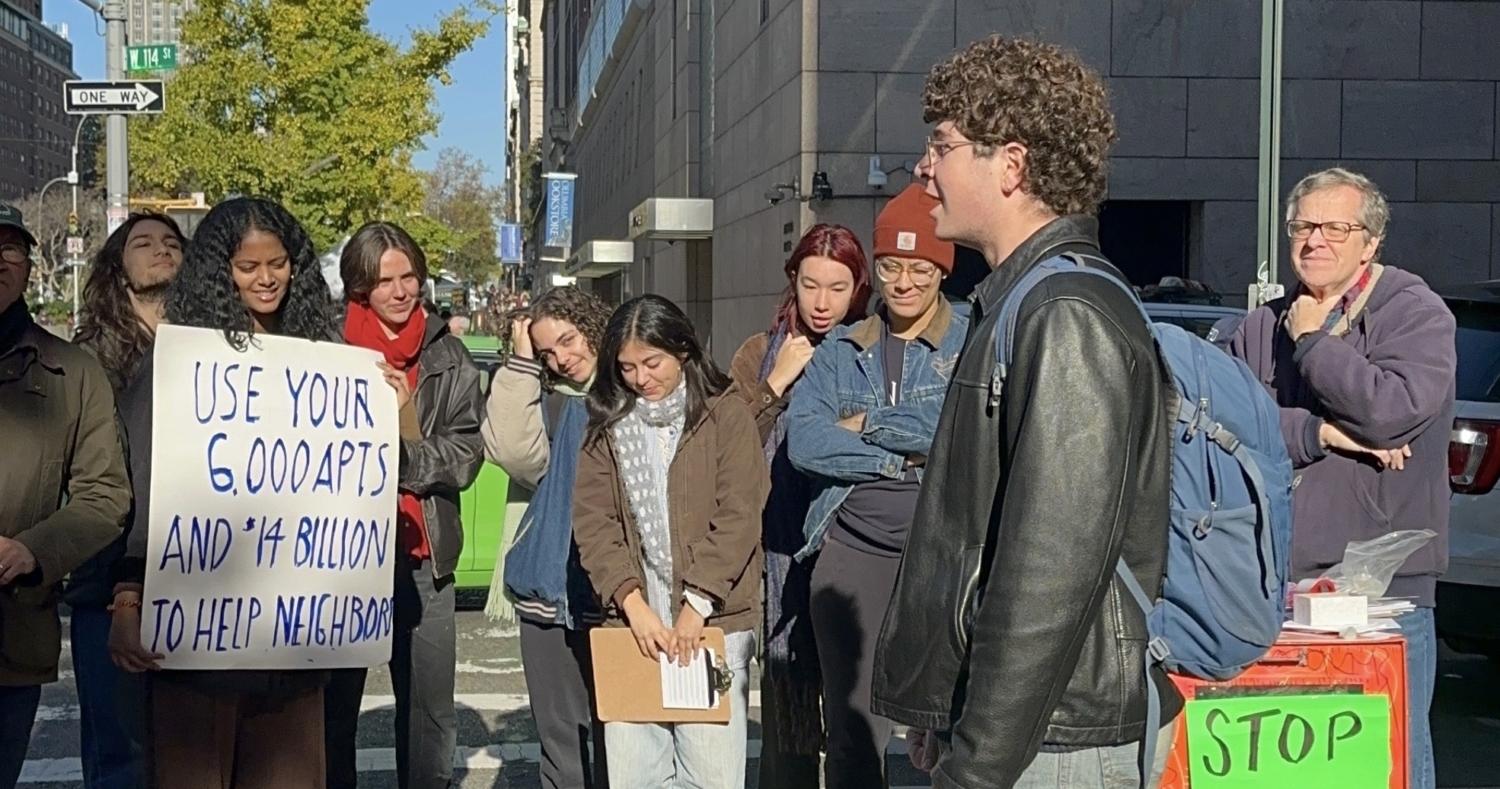
By Claudia Villalona
At least 30% of the 142 apartments in a new residential tower built by Columbia University should be reserved for low- and moderate-income renters who are not part of the Columbia community, according to a demand from several community and advocacy groups in Morningside Heights, where the building is under construction.
The 34-story residential tower at West 125th Street and Broadway, due to open early next year, is currently designated to house Columbia faculty and graduate students. But at a rally for affordable housing this weekend, organized by the Morningside Heights Community Coalition and other local groups, speakers demanded that the university reserve nearly a third of the apartments for non-Columbia renters at affordable housing rates.
“Columbia bulldozes residential buildings, displacing low-income tenants, and promises to replace lost units for the community,” New York State Assembly Member Danny O’Donnell told a Sunday afternoon rally near the Columbia campus. But “they have not kept those promises,” charged O’Donnell.
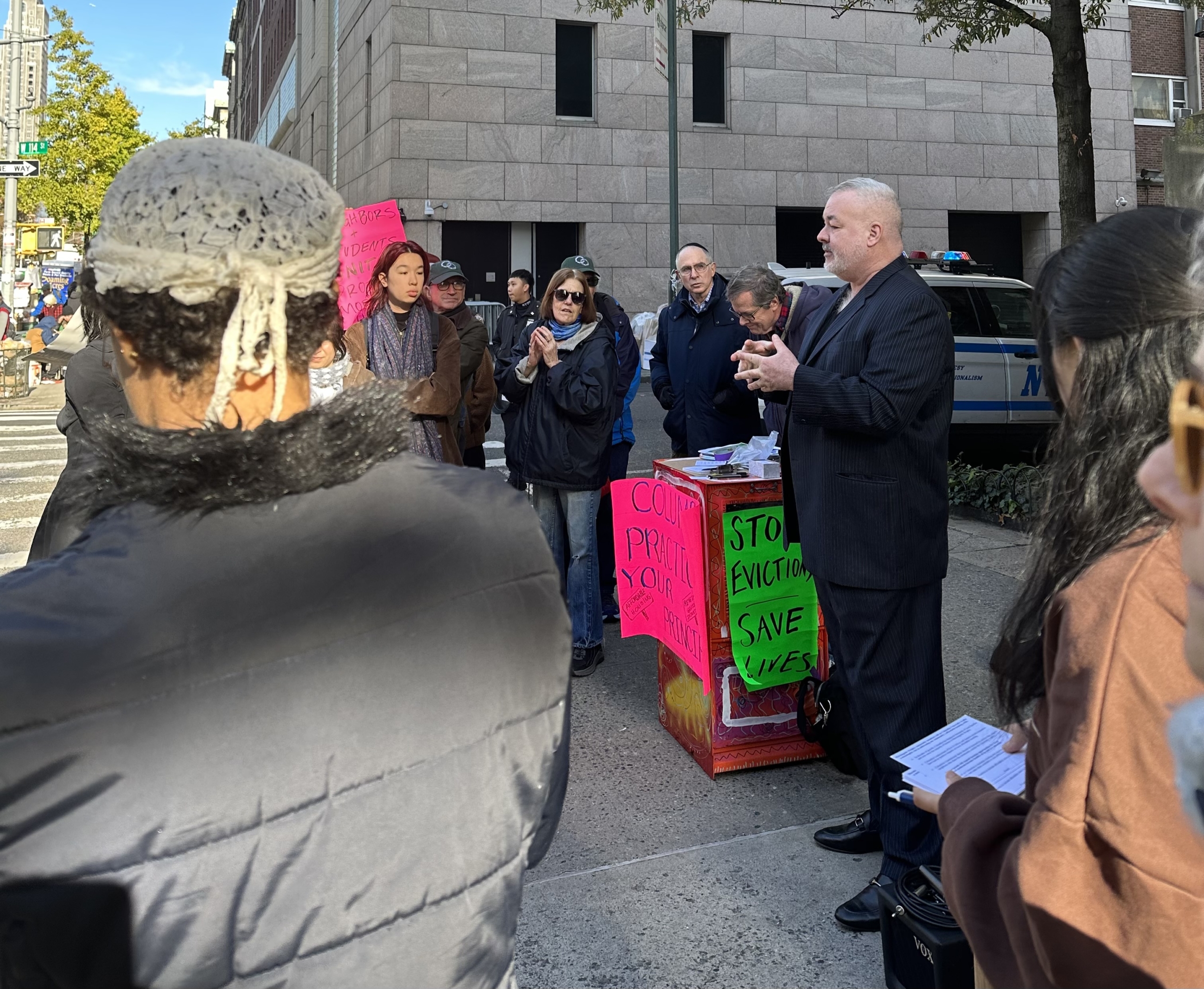
Speakers at the rally also called on Columbia to maintain the existing rent-regulated status of apartments occupied by both Columbia and non-Columbia renters and to expand other affordable housing options for non-Columbia residents in Morningside Heights.
The Morningside Heights Community Coalition published a report on the neighborhood’s affordable housing needs in July 2022. Columbia has not given a public response to the report, but newly inaugurated Columbia President Minouche Shafik did meet with the coalition and other local organizations in early October, according to the Columbia Spectator. And O’Donnell said there are plans to meet with Shafik on Tuesday to discuss the coalition’s demands for the new West 125th Street residential building, though he gave no further details.
Sunday’s rally was organized by the JUST Housing Committee (JHC), created last year by the Morningside Heights Community Coalition to coordinate relations between the community and the university, in collaboration with the Columbia Policy Institute, a progressive, nonpartisan think tank run by Columbia students and faculty members, and the Housing Equity Project, a student-run advocacy group.
Columbia, the city’s largest private landowner, owns over two-thirds of the neighborhood’s rental units. According to the JUST Housing Committee’s 2022 report, Columbia has routinely removed rent regulations on recently vacated apartments for University use and evicted non-Columbia tenants from units to make way for Columbia affiliates.
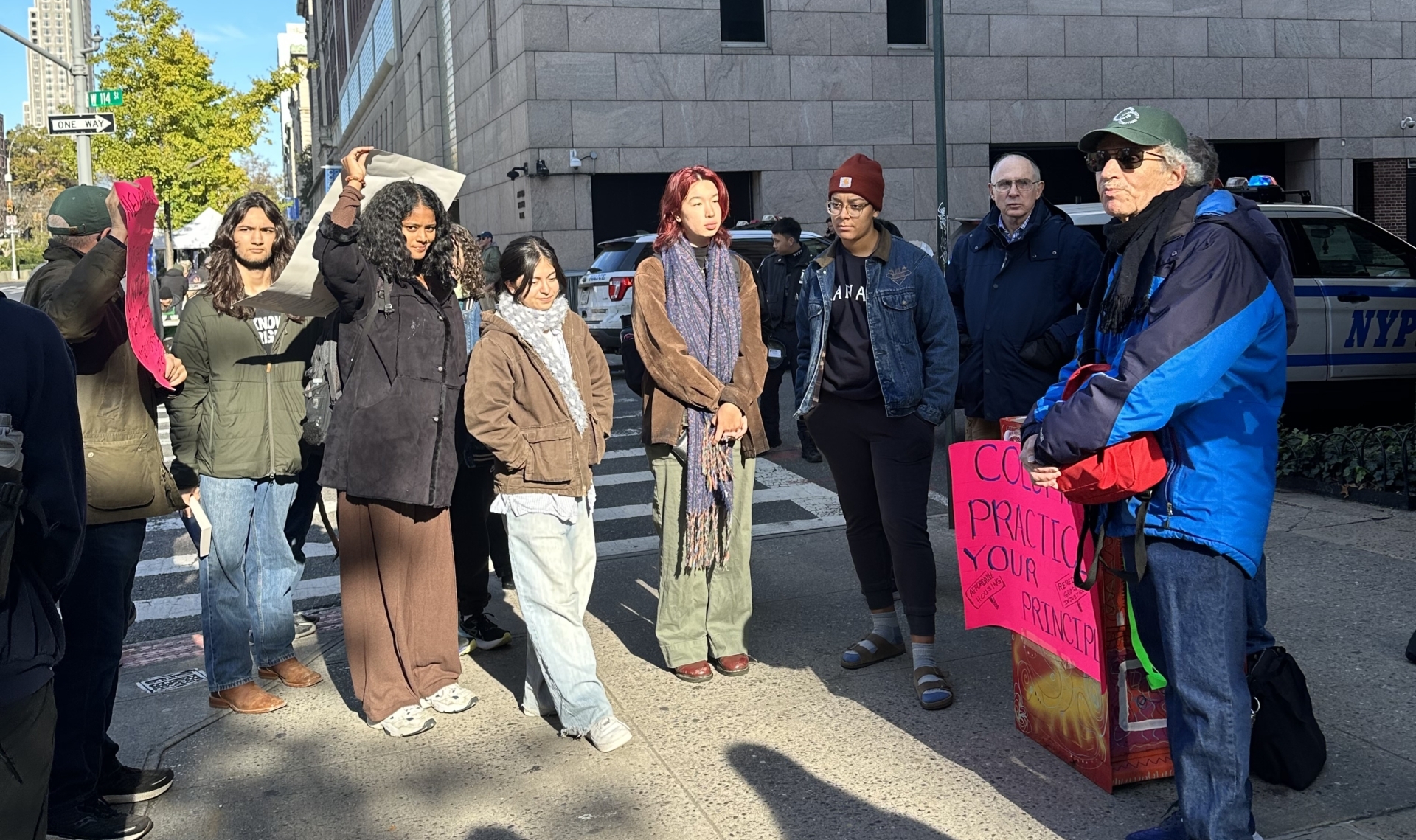
“Over 6,000 apartments have been lost over the past decade to Columbia-affiliated housing, displacing thousands of local families,” said Dave Robinson, president of the Morningside Heights Community Coalition, in a speech at the rally.
In an interview with the Columbia Spectator last year, Robinson said only a few hundred rent-regulated apartments were still in the hands of local residents. “We want Columbia to preserve those apartments for low- and moderate-income people in the community,” Robinson told the Spectator.
In a press release announcing the rally, Robinson expressed optimism that Columbia’s new president would “engage in a candid and positive dialogue with community members to address the affordable housing crisis.”
The set of demands outlined by the coalition of community organizations has gained the vocal support of local elected officials, including Manhattan Borough President Mark Levine and New York City Council Member Shaun Abreu, who represents Morningside Heights and attended Sunday’s rally.
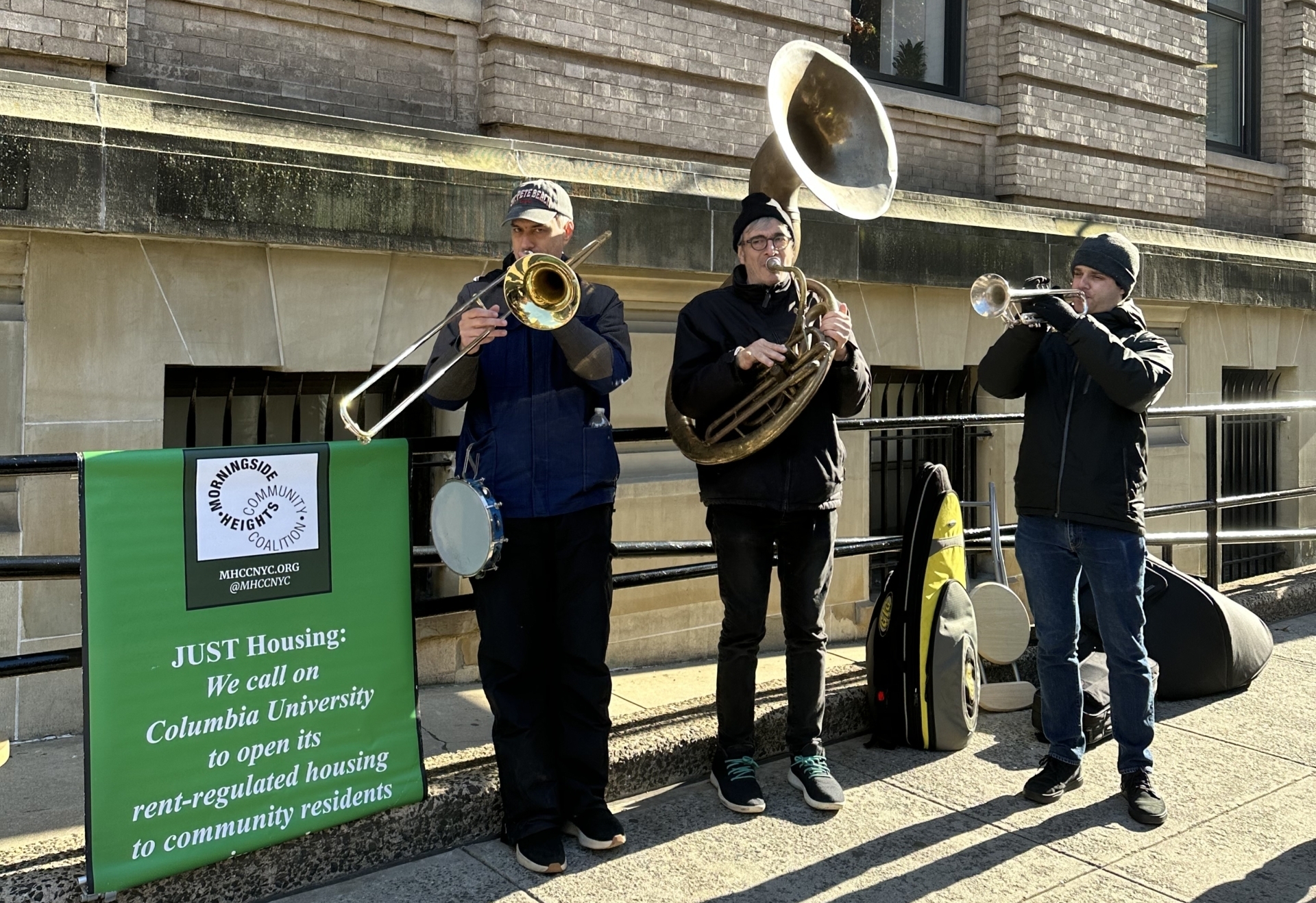
Subscribe to WSR’s free email newsletter here.



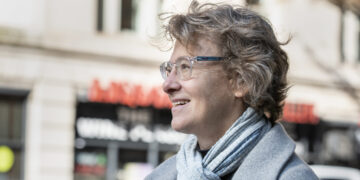
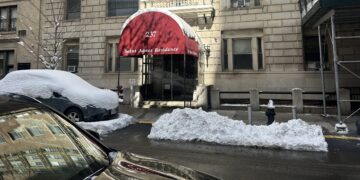




This is how a free market economy operates. Columbia is an incredibly well funded business that can afford the neighborhood. Some others simply can’t.
If it gave up its tax free status AND its use of government coercion to clear other owners out you’d have a point.
Just an example:
“On December 18, 2008, the Empire State Development Corporation (ESDC) voted unanimously to use eminent domain to seize Manhattanville property for Columbia’s benefit.”
Whatever is, is right?
If I am correct they “bulldozed” a McDonalds and a gas station to create this tower, not a residential complex. People need to review their facts.
From the beginning, Columbia has planned to provide McDonald’s with street-level spaxce for its food operation when the building is complete and prepared to open.
The quote taken from Mr. O’Donnell’s remarks references separate incidents in the past. It is linked in the article. More information about Columbia’s history in Morningside Heights can be found here: https://macaulay.cuny.edu/seminars/haslipviera09/articles/g/e/n/Gentrification.html#Columbia.27s_Gentrification_of_Morningside_Heights and https://unhabitat.org/sites/default/files/download-manager-files/NYC%20Case%20Study.pdf
Exactly. Which creates a lot of incremental new housing. Even if it isn’t affordable housing, it is housing. And those people will spend money in the neighborhood. Which creates jobs. Which those newly employed people can use to pay rent for their homes. Which might not be exactly where they want them to be but are still homes.
I think that Columbia should pay more in the way of PILOTs or whatever else to contribute to the city. But requiring them to set aside housing is not the best way to do so. Perhaps they should offer free economics classes so more people can understand how capitalism works.
the housing market is NYC, and in fact in the nation, is not an example of “free market capitalism”, and has not been so for a long, long time.
for one, affordable housing in NYC is clearly an example of what is called a “market failure”. Almost all affordable housing built in NYC for decades now is either subsidized, mandated, built directly by govt, and/or subject to various forms of regulations.
Almost all homeowners and condo/coop owners in the US get subsidized. the largest subsidy is the mortgage interest deduction, but there are other large subsidies, such as federally insured mortgages.
If you want a true free market in housing, start by doing away with zoning regulations. I don’t think most UWSers would like that.
I suspect the community and student advocates of affordable housing cited in this article know a lot more about how the housing market works in NYC than some of the commenters who are criticizing them as ill-informed.
A “market failure” is when someone lives for decades paying an absurdly low rent-stabilized monthly rent then buys their apartment for a laughably low price in a crooked insider deal.
Very few NY homeowners gets a mortgage interest tax deduction since the 2017 tax reform unless they have a MASSIVE mortgage with more than $20K year of mortgage interest.
The standard deduction plus capping SALT removed the value of the mortgage interest deduction except for the biggest mortgages.
Reply to 72RSD:
the “head of household” standard deduction is 20,800 in 2023. the SALT cap is 10K. Assuming you go to the cap in SALT (state and local tax) deduction — and recall that includes propoerty taxes — then other deductions , such as charitable, health care, and mortgage interest, would have to go above 10,800 to make it worth while.
even for taxpayers who are “married filing jointly”, which has 27,700 standard deduction, the mortgage interest deduction can be quite valuable and can kick in well below 20K in annual interest.
I would venture to say that an awful lot of people in NYC, especially in upper and upper middle income categories, would file for this deduction… in other words, they itemize deductions, including mortgage interest.
you didn’t address my basic point, which is that a “free market” in housing does not exist in NYC, or really in most sections of the country. Housing is heavily regulated and even more heavily subsidized, including for rich people.
A brief comment on the substance:
It’s true the FEWER people use the mortgage interest deduction than before 2017, but is still heavily used. Stats i can find say that usage decreased by 50% after 2017, and in fact the people who continued to use it were more heavily weighted towards high end incomes than before. a decrease by 50% leaves tens of thousands on the UWS who are using it.
I’m not against subsidizing housing, in fact i am in favor of it, but those subsidies should be aimed at poor, working class, and middle class people. the Mortgage Interest Deduction is very bad housing policy, as it tends to benefit those people who need the subsidy the least.
i made two main points in my comment:
1) there is no “free market” in housing in NYC, or in most of the country and
2) housing is heaving subsidized in the US, and the largest housing subsidy by far, the Mortgage Interest Deduction (still the largest, after 2017), is mainly a subsidy for the upper middle class and the rich.
i haven’t seen anyone dispute either of those points.
Housing is always affordable, after all someone lives in it. What you are asking for is housing for the poor. Living in Manhattan is a luxury good, why should it be subsidized? What’s wrong with living in Brooklyn, Queens, Staten Island, Bronx or the suburbs?
We do not subsidize diamonds or Hermes bags, why should the society subsidize housing in the most expensive zip codes in the world?
… and the mortgage interest deduction can be particularly valuable to upper income people who file as singles. the standard deduction here is 13,850. that includes a cap of 10,00 0 in SALT (state and local taxes) deductions.
I hope Columbia doesn’t cave into this. Their grad students and faculty need housing too. Columbia building their own buildings to house their own keeps rents affordable in non-Columbia buildings, otherwise they would jump up if more students and faculty would have to be housed too.
These people are not advocates. If they really wanted affordable housing they would have asked Columbia to build more housing for the community, but they are not. Instead they are asking that housing that Columbia is building despite their groups opposition instead be used for them and not the originally intended users.
No housing was removed for this grad student housing. It was a McDonalds and an empty parking lot that Columbia owned and are now adding housing to the neighborhood.
Columbia built a new affordable apartment building on 147th and Broadway that more than doubled the number of units that were removed for academic buildings. Columbia has opened all of their retail spaces to Harlem owned business only.
They are talking about 6000 apartments does not go far when you think about the over 100,000 migrants who came to NYC this year, need housing now.
Mayor Adams should just fly these needy folks somewhere else, like he’s doing with immigrants: https://www.city-journal.org/article/nyc-migrant-plan-borrows-from-desantis-playbook
It is not Columbia’s responsibility to provide housing for residents of Harlem. Their first obligation is to provide housing for staff and students. funds spent by the university, its staff and students is perhaps the greatest financial support of Harlem.
It’s the same issue at University of Chicago, Hopkins in Baltimore, USC etc. academic institutions, stuck in depressed minority neighborhoods can’t lift the neighborhood poor. They can help by monies spent by the institutions and their staff and students. It is not the educational institutions job to function as a settlement house.
Columbia is completely within its rights and has no obligation. The new building is a godsend for that neighborhood and things in Manhattanville are improving dramatically thanks to CU.
The rents Columbia charges for their housing is below market, so it doesn’t make sense to call them unaffordable. Also wouldn’t housing students here do more for keeping the neighborhood affordable than it would by having them instead compete with local residents for the existing apartments where they would be driving up prices?